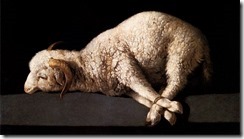 Justin Martyr, (AD 100–ca.165)
Justin Martyr, (AD 100–ca.165)
“Just as God commanded the sign to be made by the brazen serpent, and yet He is blameless; even so, though a curse lies in the law against persons who are crucified, yet no curse lies on the Christ of God, by whom all that have committed things worthy of a curse are saved. For the whole human race will be found to be under a curse. For it is written in the law of Moses, ‘Cursed is every one that continues not in all things that are written in the book of the law to do them.’ And no one has accurately done all, nor will you venture to deny this; but some more and some less than others have observed the ordinances enjoined. But if those who are under this law appear to be under a curse for not having observed all the requirements, how much more shall all the nations appear to be under a curse who practice idolatry, who seduce youths, and commit other crimes? If, then, the Father of all wished His Christ for the whole human family to take upon Him the curses of all, knowing that, after He had been crucified and was dead, He would raise Him up, why do you argue about Him, who submitted to suffer these things according to the Father’s will, as if He were accursed, and do not rather bewail yourselves? For although His Father caused Him to suffer these things in behalf of the human family, yet you did not commit the deed as in obedience to the will of God.”
Eusebius of Caesarea (c. 275-339)
“Thus the Lamb of God, that taketh away the sins of the world, became a curse on our behalf.” He then stated, “And the Lamb of God not only did this, but was chastised on our behalf, and suffered a penalty He did not owe, but which we owed because of the multitude of our sins; and so He became the cause of the forgiveness of our sins, because He received death for us, and transferred to Himself the scourging, the insults, and the dishonour, which were due to us, and drew down upon Himself the appointed curse, being made a curse for us . . . . . . But since being in the likeness of sinful flesh He condemned sin in the flesh, the words quoted are rightly used. And in that He made our sins His own from His love and benevolence towards us.” (Demonstratio Evangelica)
“And how can He **make our sins His own**, and be said to **bear our iniquities**, except by our being regarded as His body, according to the apostle, who says: ‘Now ye are the body of Christ, and severally members?’ And by the rule that ‘if one member suffer all the members suffer with it,’ so when the many members suffer and sin, He too by the laws of sympathy (since the Word of God was pleased to take the form of a slave and to be knit into the common tabernacle of us all) takes into Himself the labors of the suffering members, and makes our sicknesses His, and suffers all our woes and labors by the laws of love. . . . And the Lamb of God **not only did this**, but was chastised on our behalf, and suffered a penalty He did not owe, but which we owed because of the multitude of our sins; and so He became the cause of the forgiveness of our sins, because He received death for us, and transferred to Himself the scourging, the insults, and the dishonor, which were due to us, and drew down on Himself the apportioned curse, being made a curse for us.”
Leave a Reply
You must be logged in to post a comment.